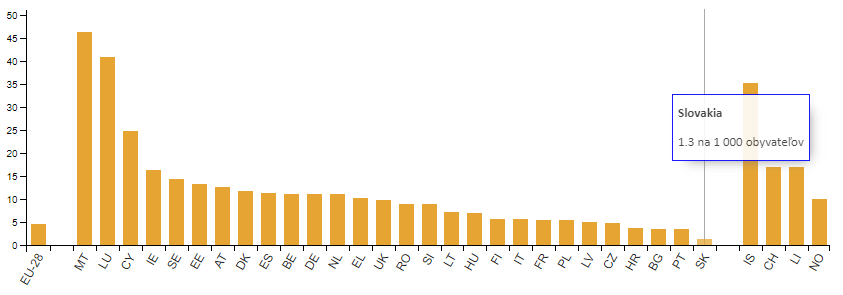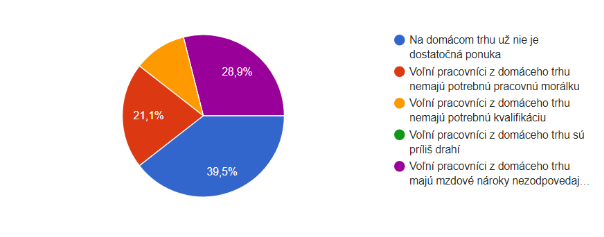When the arrival of foreigners to Slovakia is mentioned in society, people probably most often think of citizens of third countries. In reality, however, the largest number of immigrants is from Serbia, Ukraine, Romania and Bulgaria. Employers use them to fill vacancies in companies. Is this a valid reason to feel threatened when looking for work?
The number of foreigners in Slovakia is increasing
More than one million immigrants arrived in Europe in 2017, and this number is increasing every year. Therefore, it is natural that we are still worried about them today. We are afraid that they will take away our jobs or that they will destroy the welfare system of the state. However, statistics show that migrants can help the labour market.

We have undergone great changes as a country in recent years. We are gradually getting richer, modernising in various sectors and becoming a standard European Union country with advantages. However, the labour market situation is also changing radically. Unemployment and low wages have long made us a country of labour migrants. However, with the gradual increase in the standard of living, foreigners are now interested in our country. It is important to recognise that migration on average helps the countries that receive it. And it also helps locals in similar positions because they end up with better paying jobs.
“The biggest misconception is that migrants and refugees are a threat to us. It turns out that demographic changes and an ageing population mean that we will need migrants in the future.”
– Director of the Centre for Research on Ethnicity and Culture
One in seven people in the world is a migrant
We can say that the whole of Europe is suffering from a shortage of skilled labour. As many as 39.5% of respondents from Slovak companies employing foreigners reported an insufficient supply of labour on the labour market. The latter is considered to be the biggest concern of entrepreneurs. This is why the workforce is being supplemented with foreign workers, otherwise companies risk being refused contracts.

Negative attitudes towards migrants are widely felt. But it is important to look at the other side of the whole situation. If we can travel abroad for work (for example, as carers or to work in the manufacturing sector), why shouldn’t others be able to do so? If we travel to better finances and lifestyles, why can’t we consider the needs of others? When we encourage our children to study abroad, we certainly do not see them as a burden to the country. For people from poorer countries (such as Ukraine, Serbia, Romania), we are a country with better financial opportunities. By working in Slovakia, they will be able to provide housing and food for their families or enable their children to study. Another positive fact remains the influx of foreign workers. It will stir up job offers that don’t pan out. If the influx of foreigners is to boost the labour market, we should not resist it, but see it as an opportunity and a help.
“When we offered the unemployed in Komárno a job in the Lozorno Industrial Park, more than half of the more than 60 people who came to the presentation of the offer picked up as soon as they learned that they would have to travel. They didn’t even listen to the offer. This was about quality control at the output, a simple activity that requires no special qualifications. We offered an above-average salary, accommodation and transport allowance. The work would be in shifts three days a week. Out of over 60 people, three eventually took the job, and these were also candidates who attended the presentation of the offer on purpose. They came on the recommendation of friends who had already worked in Lozorno and liked the job.”
– Manager of Atena Personnel Company
Economic migrants as a solution
The solution for us is economic migrants from culturally close non-EU countries. Most hopes are pinned on our eastern neighbour. Ukrainians, like us, are among the nations that have been affected by all the great waves of migration. If they come with sufficient qualifications, they will enable entrepreneurs and business to fill jobs and open new production. There may be a situation where the native population moves to another occupation or position in the sector when the migrants arrive. But ultimately, immigrants bring us such skills that overall employment increases for the native population as well.
So migrants are not taking our jobs, but they are creating the right conditions for more employment. They are most often filled in positions where the demand for employees is problematic. As a rule, it is most often a production operator, welder, quality controller, metal worker, electrician or warehouseman. To prove to you that there really is no shortage of jobs, take a look at our current job vacancies. If you are interested, please contact us at any time. Your satisfaction is our top priority.







